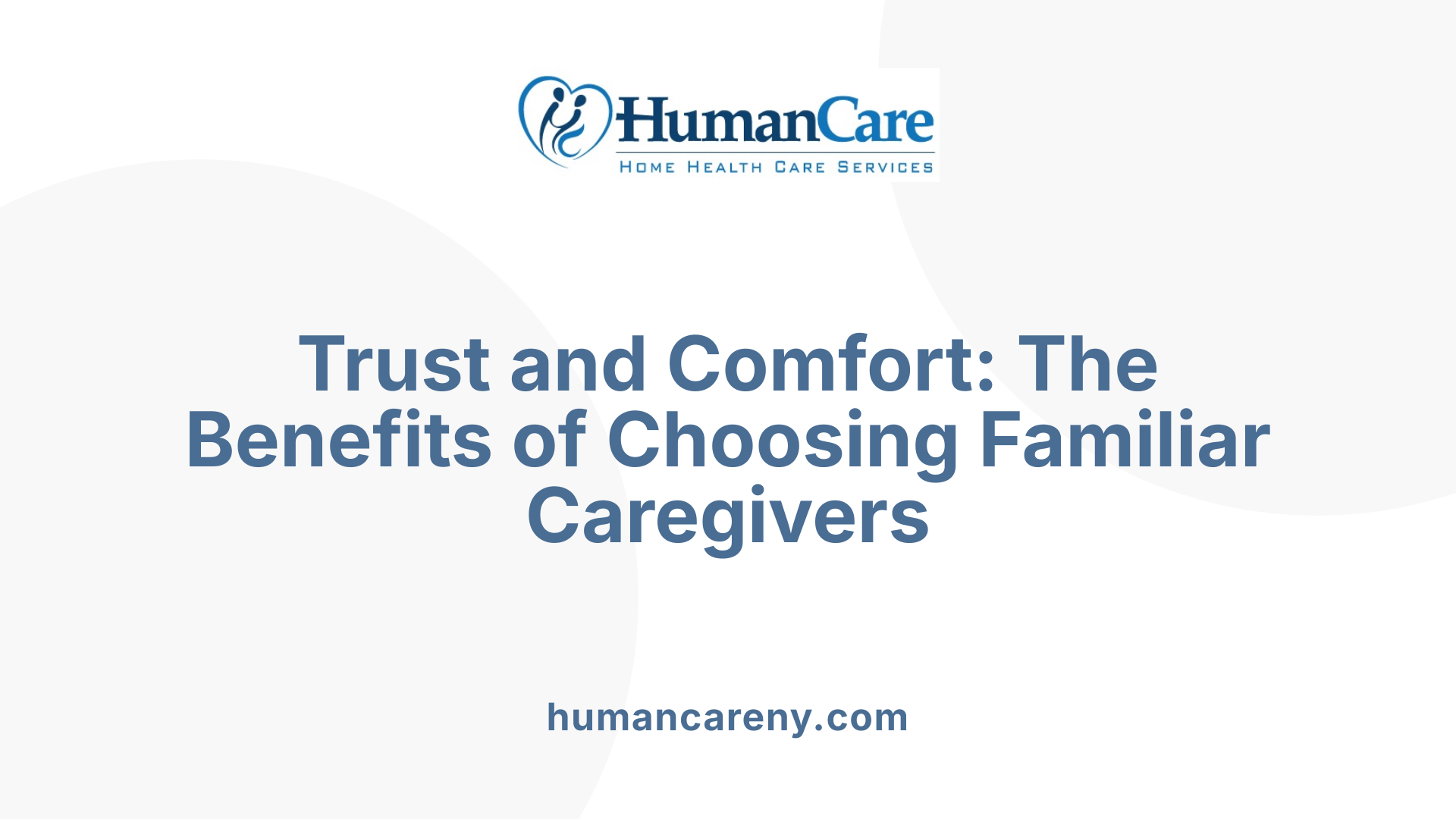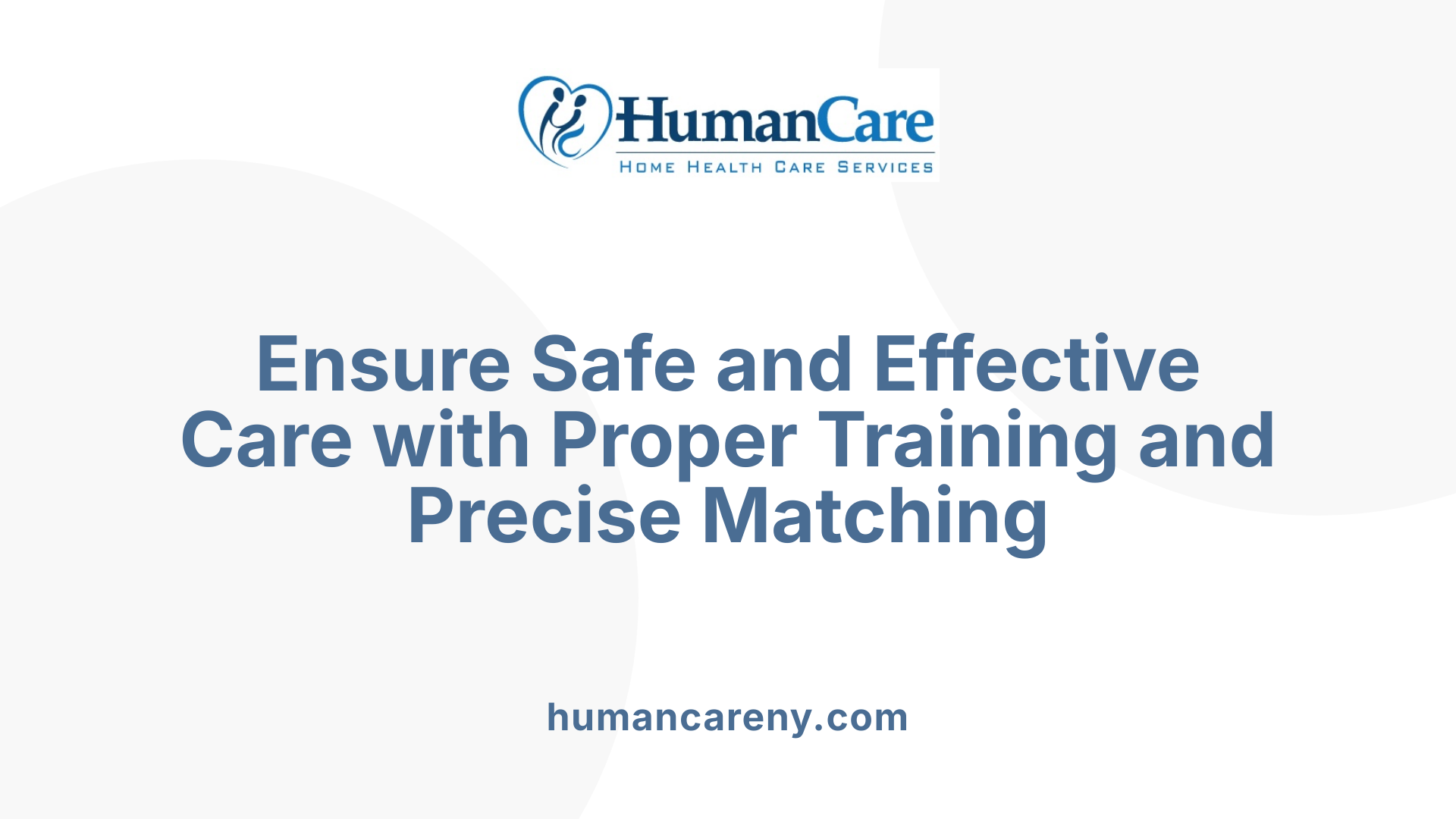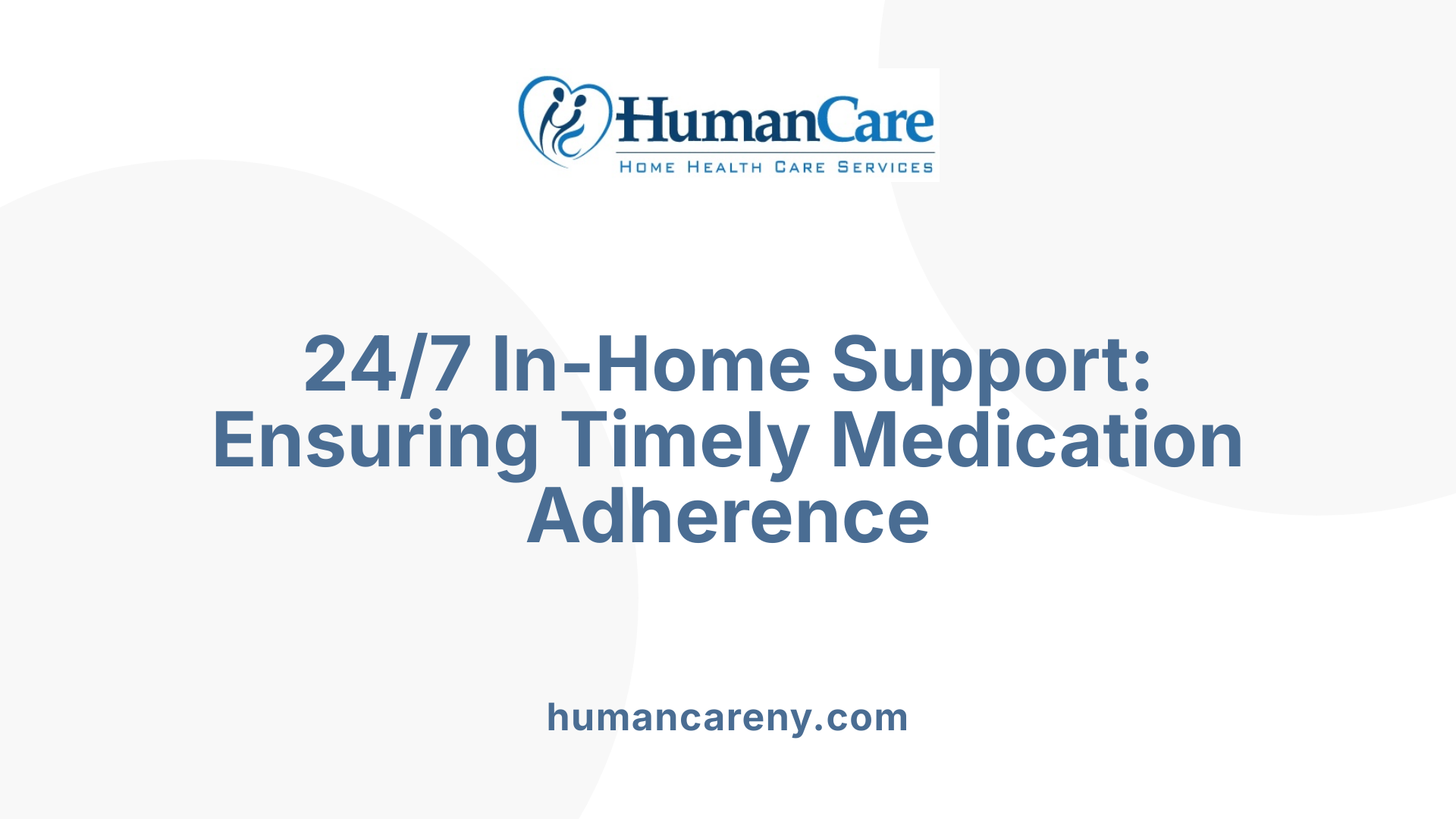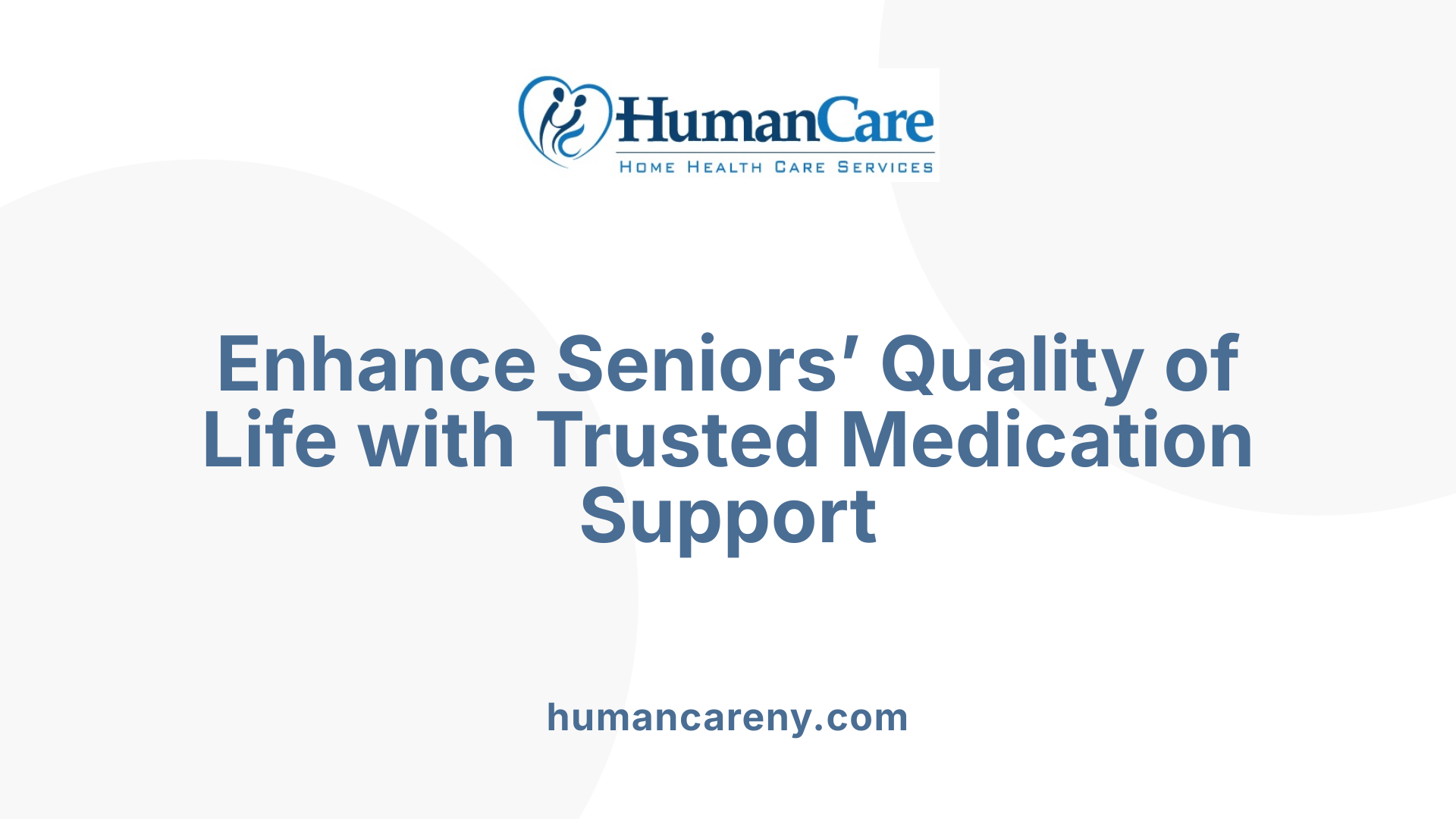The Crucial Role of Companion Care in Medication Management
Medication management is a vital component of health maintenance for seniors, many of whom live with chronic illnesses requiring strict adherence to complex medication schedules. Companion care services provide essential support by assisting with medication reminders and administration, enabling seniors to maintain their independence safely within their own homes. These home-based care solutions, including programs like New York's CDPAP, empower seniors by combining personalized caregiver support with flexible management of daily healthcare routines.
Understanding Companion Care and Medication Assistance for Seniors
What is companion care and how does it assist with medication management?
Companion care refers to non-medical support services tailored for seniors. These services focus on aiding with activities of daily living such as companionship, homemaker support, and personal care. An important element of companion care is assistance with medication management. Caregivers help ensure that seniors take their medications on time, in the prescribed doses, and maintain a consistent medication schedule.
This support is vital because it helps prevent medication errors and complications that can seriously affect a senior's health. With consistent reminders and supervision, seniors are less likely to miss doses or take incorrect medications, promoting better health outcomes.
The role of companion care in medication management
Medication management within companion care goes beyond just reminders. It includes educating seniors about their medications, monitoring for side effects, and communicating any concerns to healthcare providers. This ensures that the medication regimen is not only followed but also safely integrated into the senior’s daily routine.
Impact on seniors’ health and independence
Companion care empowers seniors by helping them remain independent in their homes while receiving the necessary support to manage their health. This assistance lowers the risk of hospitalizations related to medication errors and supports chronic condition management. It also enhances seniors’ quality of life by providing emotional support and enabling safer, more confident self-care.
Programs like the Consumer Directed Personal Assistance Program (CDPAP) underline the importance of personalized care. By allowing seniors to select trusted caregivers—including family and friends—these programs promote flexibility, comfort, and continuity in medication and daily care management.
Through carefully matched and trained caregivers, companion care contributes significantly to maintaining seniors’ health and fostering independence, illustrating its essential role in eldercare services today.
The Consumer Directed Personal Assistance Program (CDPAP): Flexibility in Caregiving

What is the CDPAP Program?
The Consumer Directed Personal Assistance Program (CDPAP) is a New York State Medicaid initiative designed for individuals who are chronically ill or physically disabled. This program allows eligible recipients to take control of their care by choosing and training their own caregivers. Unlike traditional home care services, CDPAP lets recipients hire trusted friends or family members (with the exclusion of spouses and parents of minors) to provide daily living assistance and skilled nursing care at home.
How Does CDPAP Empower Seniors in Choosing Caregivers?
One of the standout features of CDPAP is the empowerment it offers to seniors and individuals with disabilities. Recipients oversee every aspect of their caregiving: recruiting, hiring, training, supervising, and even terminating caregivers. This self-directed model fosters independence and ensures that care is personalized and culturally sensitive.
The program is supported by a Statewide Fiscal Intermediary, Public Partnership LLC, which handles payroll, benefits, and employment documentation. This system eases administrative burdens on recipients, letting them focus on selecting caregivers who best meet their individual needs.
How Does CDPAP Support Medication Management for Seniors?
Caregivers selected through CDPAP can assist with medication reminders and administration, crucial tasks for maintaining health and preventing complications. This hands-on assistance in medication management ensures adherence to prescribed regimens and enhances overall well-being.
Allowing recipients to choose familiar and trusted caregivers increases comfort and communication when managing medications, making it a personalized approach that supports seniors’ health effectively. This forms an integral part of the broad spectrum of home care services the program offers, making CDPAP a valuable resource for long-term care.
Benefits of Choosing Familiar Caregivers for Medication Support

Why is it beneficial for seniors to hire family or friends as caregivers for medication management?
Hiring family members or friends as caregivers offers several significant advantages, especially when it comes to medication support. Familiar caregivers naturally foster a strong sense of trust and open communication with seniors. This relationship encourages seniors to feel more comfortable discussing their health needs, concerns, and preferences.
Because of this trust, medication adherence often improves. Family and friends are more attuned to subtle changes in behavior or health that may indicate missed doses or side effects. They can provide timely reminders and personalized assistance, ensuring seniors take their medications correctly and consistently.
Additionally, familiar caregivers often share a deeper emotional connection. This emotional comfort reduces anxiety or resistance surrounding medication routines and health management, making the process less clinical and more supportive.
In summary, choosing trusted individuals as caregivers helps seniors maintain independence, improves health outcomes through better medication adherence, and provides emotional reassurance through compassionate care.
Role of Home Health Agencies in Safe Medication Management
What services do home health agencies offer?
Home health agencies provide a wide range of services tailored to support seniors and individuals with special needs. These include companionship, homemaker support, personal care, home health aides, skilled nursing, and waiver services for long-term care. The Consumer Directed Personal Assistance Program (CDPAP) enables clients to hire trusted individuals such as family members or friends, promoting personalized and comfortable care.
How are caregivers trained and vetted?
To maintain quality, agencies like Community Care conduct rigorous hiring processes. This includes thorough background screenings, skill matching, and cultural competency assessments. Caregivers receive comprehensive training to handle various tasks safely and effectively, ensuring they are well-prepared to support clients’ daily living activities, including medication management.
How is safety ensured through screening and matching?
Safety is prioritized by carefully screening prospective caregivers and matching them to seniors based on specific needs and preferences. This personalized approach reduces risks and enhances comfort. Rigorous background checks and ongoing supervision help minimize hazards, especially concerning medication reminders and administration.
How do home health agencies ensure safety and quality in medication management?
Agencies take a multidisciplinary approach to medication safety. Caregivers are trained on medication protocols and responsible reminder practices. This education, combined with vigilant screening and strategic caregiver-client matching, helps safeguard seniors from medication errors and supports adherence to prescribed regimens.
Comprehensive Training and Skill Matching for Effective Care

Why is caregiver training essential?
Caregiver training is crucial to ensure that personal assistants can provide safe and effective support, especially for seniors managing complex health issues at home. Training covers various aspects, including medication management, which equips caregivers with knowledge about medication schedules, dosage accuracy, identifying side effects, and understanding when to report medical concerns. This foundational training helps reduce risks and promotes better health outcomes for those receiving care.
How is skill matching tailored to seniors' unique needs?
Skill matching involves pairing caregivers with seniors based on the specific care requirements and medical conditions of the individual. This personalized approach ensures caregivers have the appropriate expertise and experience to handle chronic illnesses or disabilities effectively. Tailored skill matching also considers a shared language and cultural background, which improves communication and builds trust between caregivers and care recipients.
What role does language and cultural competence play?
Language and cultural competence are vital for fostering understanding and comfort in the caregiving relationship. Caregivers trained to respect and incorporate cultural sensitivities can better address the personal preferences and values of seniors. This competence enhances medication adherence and overall care quality, making seniors feel heard and respected in their own homes.
In summary, comprehensive caregiver training combined with precise skill matching and cultural understanding strengthens the quality of home care, particularly for medication management and daily living support. Ensuring caregivers are well-prepared and compatible with the seniors they assist plays a significant role in promoting health, safety, and independence.
The Role of Supervision and Self-Direction in CDPAP Medication Support
Seniors’ Responsibility in Caregiver Supervision
In the Consumer Directed Personal Assistance Program (CDPAP), seniors or eligible recipients take an active role in hiring, training, and supervising their caregivers. This responsibility includes overseeing medication management, ensuring that caregivers follow prescribed medication plans carefully. By directly supervising caregivers, seniors maintain control over the quality of care they receive and can promptly address any issues or changes needed in their care routine.
How Self-Direction Enhances Medication Management
Self-direction in CDPAP allows seniors to tailor their home care services to their unique needs. This flexibility leads to improved medication management because recipients can select caregivers they trust who understand their preferences and health conditions. With self-direction, seniors can communicate directly with caregivers about medication schedules, side effects, and any concerns, which promotes adherence to medication regimens and timely adjustments.
Role of Designated Representatives
For seniors unable to self-direct, designated representatives step in to manage caregiver supervision and medication support. These representatives ensure that caregivers comply with instructions and maintain accurate medication administration. Their involvement guarantees continuous monitoring and safeguards the recipient’s health by advocating for appropriate medication management.
Recipients or their representatives thus play a critical role in overseeing medication support within CDPAP, empowering individuals to maintain independence while ensuring safe and effective care tailored to their needs.
Around-the-Clock Care and Its Impact on Medication Adherence

Benefits of 24/7 In-Home Care
Having continuous in-home care provides seniors with consistent support tailored to their unique needs. This level of care fosters a safe environment where daily routines, including medication schedules, are closely monitored. Around-the-clock care also promotes independence by allowing seniors to remain in the comfort of their own homes while receiving necessary assistance.
Preventing Missed Doses
One of the greatest challenges for seniors is managing complex medication regimens. With 24/7 companion care, caregivers offer timely medication reminders, ensuring doses are never missed. This constant vigilance helps maintain proper treatment effectiveness and prevents complications that can arise from skipped or incorrect medication intake.
Emergency Responsiveness
Apart from routine medication management, this continuous care model enables immediate attention if a senior experiences side effects or adverse reactions. Caregivers can quickly identify changes in health status and respond by seeking medical assistance, thereby reducing emergencies caused by delayed treatment.
How Does 24/7 Companion Care Improve Medication Management for Seniors?
Continuous care reduces the risk of missed doses by providing timely reminders and assistance at any hour. It also allows caregivers to promptly respond to emergencies, side effects, or medication-related issues, ensuring safety and peace of mind for both seniors and their families.
Family and Patient Resource Support Enhancing Medication Management
What resources are available to families to support medication management at home?
Families caring for seniors or individuals with disabilities have access to specialized resource centers designed to support medication management at home. These centers provide essential guidance on various home care options and help families develop effective medication schedules.
Education on medication and financial planning
Education plays a pivotal role in helping caregivers understand the complexities of medication regimens. Resource centers offer detailed information about insurance coverage and financial planning, ensuring families can manage costs associated with home care. This educational support empowers caregivers to maintain adherence to prescribed treatments and directly contributes to better health outcomes.
Support navigating Medicaid and Medicare for home care
Navigating public insurance programs like Medicaid and Medicare can be challenging. Resource centers assist families in understanding eligibility and benefits related to home care services, including programs like the Consumer Directed Personal Assistance Program (CDPAP). They provide clear explanations on how these programs operate, helping families make informed decisions that optimize care and financial resources.
The combined support of guidance, education, and insurance navigation strengthens families' capability to manage medication safely and effectively at home, improving the overall quality of life for the care recipient.
Improving Quality of Life Through Reliable Medication Support

How does effective medication management through companion care improve seniors’ quality of life?
Proper medication management plays a crucial role in enhancing seniors’ health by reducing hospitalizations and effectively managing chronic conditions. When seniors receive personalized medication support through companion care, they are more likely to adhere to prescribed regimens, which helps maintain stability and prevents complications.
Enhancing independence and safety
Medication management is not just about taking pills on time; it also supports seniors' independence and safety in their daily lives. With the help of trained caregivers who understand their needs, seniors can continue living at home comfortably and confidently. This personalized approach decreases medication errors and fosters a safer environment.
Community Care’s commitment to eldercare
Community Care, a trusted home care and nurse staffing agency, specializes in the Consumer Directed Personal Assistance Program (CDPAP). They provide caregivers who assist with medication management alongside other essential services such as companionship, personal care, and skilled nursing. Their rigorous caregiver screening and training, commitment to cultural competency, and 24/7 availability ensure seniors receive compassionate, reliable support. This dedication directly improves health outcomes and quality of life for homebound seniors and physically challenged individuals.
Overall, effective medication management through companion care bridges the gap between medical needs and daily living, empowering seniors to maintain health, independence, and a higher quality of life at home.
Empowering Seniors Through Compassionate Medication Support at Home
Companion care plays a critical role in assisting seniors with medication management and reminders, allowing them to safely maintain independence in familiar surroundings. Programs like CDPAP exemplify how personalized, flexible caregiving enhances adherence and health outcomes through trusted caregiver selections and comprehensive supports. With the commitment of dedicated home health agencies offering trained, screened caregivers and robust family resources, seniors receive the attentive, round-the-clock help they need. This holistic approach not only improves medication compliance but elevates overall well-being, empowering seniors to live healthier, more fulfilling lives within the comfort of their own homes.



